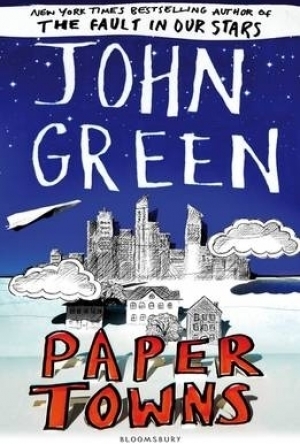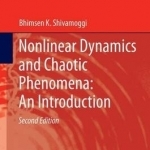
Nonlinear Dynamics and Chaotic Phenomena: An Introduction
Book
This book starts with a discussion of nonlinear ordinary differential equations, bifurcation theory...
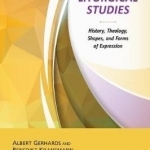
Introduction to the Study of Liturgy
Albert Gerhards, Benedikt Kranemann and Linda M. Maloney
Book
Worship is at the heart of the Christian faith. This applies equally to all denominations. For that...
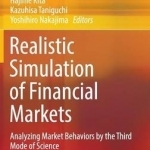
Realistic Simulation of Financial Markets: Analyzing Market Behaviors by the Third Mode of Science: 2016
Hajime Kita, Kazuhisa Taniguchi and Yoshihiro Nakajima
Book
This book takes up unique agent-based approaches to solving problems related to stock and their...
Whatchareadin (174 KP) rated Paper Towns in Books
Apr 9, 2019
Quentin is a senior in high school. Graduation is right around the corner and then he's off to Duke. When his next door neighbor, Margo knocks on his bedroom window late one night, he's reminded of a time when they were younger and used to truly be friends. Margo is extremely upset about the current status of her relationship with her boyfriend and is looking for someone to help her pull of the ultimate revenge. When Margo goes "missing" the next day, Quentin will stop at nothing to use her breadcrumbs and find her.
I decided to read this book for two reasons. Reason 1: It was coming on HBO and of course I had to read the book before I could watch the movie. Reason 2: I loved The Fault in Our Stars and when I enjoy a book by a particular author, I like to read everything they have written. Now I'm looking forward to watching the movie.
This whole book is based around a group of high school seniors who are out searching for their quirky friend, Margo. I liked the book because it was a quick easy read. It kept my attention throughout and I had to know how it was going to end. The book brought me back to my high school years(especially with my 20 year reunion coming up) with the references to poetry and prose I read during that time. During my 11th grade year we read a lot of poetry and classic literature. Interpreting poetry either as the author intended or by your own life experiences. Also this book made me thing about how far I would go to help someone else. Quentin and Margo are neighbors, but as time has gone on and their lives have changed, they aren't close friends, more like acquaintances. So when she disappears for yet another time, why does he feel it's his duty to be the one to find her?
This is a good YA book that may make some more interested in the poetry and classic literature featured in this and other John Green books.
Rachel King (13 KP) rated Finding the Light of Jesus in Books
Feb 11, 2019
The final chapter is actually a collection of prayers and reflections that the reader is supposed to follow over the course of seven days. This is followed by a section of "Conversations With Jesus" that focus on different topics such as anger, jealousy, being overwhelmed, and fear. This is followed by five pages in which she quotes a scripture from the New American Bible, and leaves a blank space for the reader to journal the answers to her questions about the scripture verse. This is followed by more of her prayers and a further 30 days of prayer and reflection.
Overall, the author presents a Jesus that is only concerned about a person's feelings, whom the author seems to believe that everyone has inside of him or her from birth. She further indicates that everyone goes to heaven, and Jesus' strongest quality is being a "light." No mention is made of the basic precepts of Bible-based Christianity, such as sin, salvation, and the resurrection of Jesus Christ. Instead she writes things that seem to contradict parts of scripture, such as stating that Jesus does not judge us and that we are the "light," as well as what I previously mentioned about everyone going to heaven. In the context of that paragraph, I almost expected the author to write that we are all Jesus. I also noticed while reading that nowhere does she ever refer to Him as Jesus Christ either. The entire book has a vague New Age feel, as many of the things Tuttle writes mimic the doctrine of a New Age Jesus.
The author, Cindy Tuttle, has a background of working in the mental health industry for more than twenty-five years. Based on what I have read in this book, I have no doubt that she is good at her job and finds great success with her patients, but I do not find this book of the same calibur.
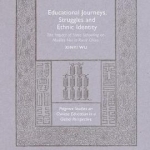
Educational Journeys, Struggles and Ethnic Identity: The Impact of State Schooling on Muslim Hui in Rural China
Book
This book examines how state schooling in China has economically, culturally, and ideologically had...
China's Belt and Road Initiatives and its Neighboring Diplomacy
Book
This book studies China's Belt and Road Initiatives and the country's neighboring diplomacy. The...
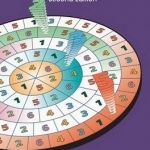
Elementary Probability with Applications
Book
Elementary Probability with Applications, Second Edition shows students how probability has...
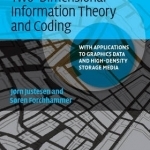
Two-Dimensional Information Theory and Coding: With Applications to Graphics Data and High-Density Storage Media
Jorn Justesen and Soren Forchhammer
Book
This complete introduction to two-dimensional (2-D) information theory and coding provides the key...
Sport and Health
Daniel Parnell and Peter Krustrup
Book
It is a common assumption that sport is good for us and that participation in sport embodies public...
